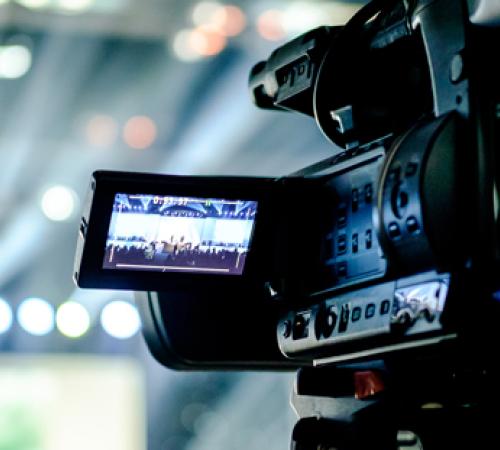
Common professional indemnity insurance risks for media and advertising professionals

Your clients come to you for creativity, imagination, and your ability to deliver, whether it’s an advertising campaign for a new product, or a brand positioning exercise.
They value your advice and expertise, and are often willing to share the creative risks that you both take to get the best possible results. But what happens when things go wrong?
What if your advice inadvertently causes a reputational or financial loss for your client? What if a mistake in a campaign – failure to correctly license a music track used, for example – leads to your client making a claim against you?
For any business that provides professional advice, like media and advertising agencies, professional indemnity insurance is an essential part of avoiding claims against your business and, if a claim does happen, minimising its financial impact.
The biggest mistake though is assuming that a claim will never happen. Here we look at a number of the common areas of claims we see in this sector:
Spelling mistakes
Yes, they happen to all of us, but we see a number of claims from media and marketing clients relating to spelling, typography and layout errors in brochures and marketing material.
These might relay inaccurate pricing information or simply omit of critical information. If it’s spotted in time, material can be reprinted with minimal impact on the client relationship. Your professional indemnity insurer can respond to cover the costs of reprinting the materials as a rectification claim, often without the client ever knowing there was a problem.
Sometimes a mistake isn’t noticed until the material has been distributed or broadcast, however. Your professional indemnity insurance can respond to make good any loss caused to your client by the error.
Administrative errors
Booking media space is often a core activity for an agency, but what if wires get crossed? One of our clients was tasked with booking advertising space in the national press for the Boxing Day sales for a retail store, with a run of one week leading up to New Year’s Day.
Unfortunately, due to a human error at the agency, the booking started on the last day of the intended ad-flight. The store refused to pay for the media spend, and claimed for financial damage due to the loss of effective advertising for the sale.
Intellectual property infringement
A common area of claims is the failure to obtain the appropriate licences to use materials such as images or music in marketing content. Typically it could be stock photos used without the correct permissions being obtained. Allegations that work has been copied from another copyrighted work are also a risk.
Libel or defamation
Broadcasters and publishers run a particular risk when it comes to defamation. It’s quite easy to unintentionally defame someone and those who can’t handle legitimate criticism often try to use defamation law to stifle legitimate reporting.
Conducting a live interview? You immediately assume a level of responsibility for everything that is said and could run the risk of a defamation claim.
Non-payment of fees
Another risk is that a client makes some complaint about your work and won’t pay their fees. It could be that they have taken issue with your service or they could simply be trying to wriggle out of their contractual agreement by claiming negligence even if you have done nothing wrong.
Protecting your business
Given the risks your business faces, what preventative measures can you take?
- Check your contract arrangements. Where there is no contract, the first (very expensive) argument will be about which terms apply to a disputed project. The primary purpose of having your own standard terms and conditions is to protect your business. The better-drafted and more detailed the contract, the opportunity there is to avoid a claim completely, negotiate a settlement or avoid a costly litigation
- Keep good records. Ensure you can reference all your conversations and correspondence with your client so you can produce a paper trail. Follow up a phone call or a meeting with an email summary and make sure any final sign-off has been received (in writing) from your client
- Check copyright issues. Check all material you use on behalf of a client has been appropriately sourced. Have a process in place to ensure appropriate licences are always obtained and don’t forget to keep refreshing staff training. Often there’s a process in place, but due to a lack of refresher training, new or more junior members of staff may not be aware of your procedure
- Protect your business with professional indemnity insurance. When choosing your cover it’s important to buy the right levels of protection, which usually depend on the size of your business and of your clients. Many in the media industry do business globally, so be sure to manage associated risks by including appropriate cover in your policy
- Let your insurer know as soon as you are aware of a client problem. A good professional indemnity insurer will be able to intervene at an early stage to prevent a bigger claim and, in many cases, help minimise the risk to the client relationship
For more information on how our professional indemnity insurance could provide protection for your business in the event of a mistake or a claim made against you, visit our dedicated information page Hiscox Professional Indemnity Insurance – Marketing and Media Cover Information.
For more information about professional indemnity insurance, visit our information page What is Professional Indemnity Insurance.
Disclaimer:
At Hiscox, we want to help your small business thrive. Our blog has many articles you may find relevant and useful as your business grows. But these articles aren’t professional advice. So, to find out more on a subject we cover here, please seek professional assistance.


